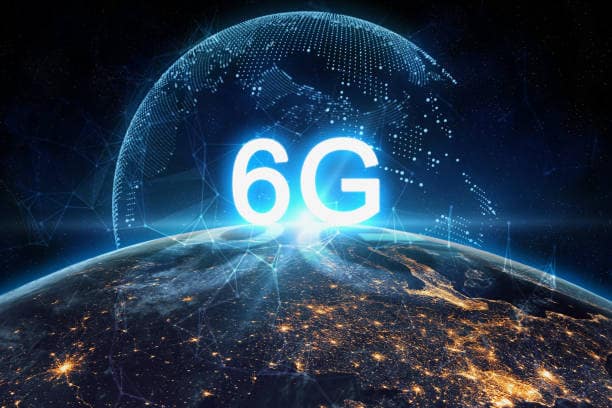In recent years, we have seen a rapid evolution in mobile technology, with new generations of mobile networks (4G and 5G) being introduced, offering an increase in speed and capacity.
But what does the future hold for mobile networks?
The next generation of mobile networks, 6G, is already being developed by researchers and companies around the world.
6G is expected to offer a multitude of new capabilities and services that will be transformative for industries and society as a whole.
You might be hearing a lot about 6G technology of late, and of course, be wondering what to expect when it is fully up and running in the coming years.
Here at LekeTech Arena, we will be leaving you with a breakdown of all you need to know about 6G mobile technology and its implications for the future of communication. From how fast it will be compared to current standards to its possible applications.
Get ready to explore all that 6G mobile technology has to offer!
What Does 6G Technology Have To Offer?

The possibilities of 6G Technology are endless…. but let’s look at a few:
• Ultra-high-definition video streaming and virtual reality – 6G will enable high-quality streaming of ultra-high definition (UHD) video content and provide a realistic immersive experience for users with virtual reality (VR) headsets.
• Increased connectivity for the Internet of Things (IoT) – With its higher data rates and greater capacity, 6G will be able to connect billions of devices to the internet and enable new IoT applications such as real-time monitoring of large industrial plants or citywide traffic management systems.
• Ultra-fast wireless broadband – 6G is expected to deliver wireless broadband speeds that are many times faster than those currently available on 5G networks.
This will enable rapid downloading of large files, such as HD movies or software updates, in just seconds.
• Enhanced mobile battery life – One of the key challenges facing mobile devices today is battery life. With its low power consumption, 6G could just be the savior.
How 6G Mobile Technology Is compared to 5G?
As we speak, 6G technology is currently still in development, but it is expected to be significantly faster than 5G technology.
It is also expected to have a much higher capacity, allowing more devices to connect to the network at the same time.
Additionally, 6G mobile technology is expected to be much more energy-efficient than previous generations, meaning that battery life will not be as big of a concern for device users.
6G will be a significant upgrade from 5G technology, offering much faster speeds and lower latency.
The upgrade in connectivity will also enable new applications for use cases that are not possible with 5G, such as real-time holograms and augmented reality.
The Expected Speed Of 6G.
The long-awaited release of 6G is finally upon us, and we couldn’t be more excited.
With 6G mobile technology, we can expect speeds of up to 1 gigabit per second (Gbps). That’s about 10 times faster than 5G and 100 times faster than 4G.
With these kinds of speeds, you’ll be able to download a 4K movie in less than 10 seconds.

just as speed is one of the major benefits of 6G, this new generation of wireless technology will also offer better security and less latency than its predecessors.
Also, with the growing popularity of augmented reality (AR) and virtual reality (VR), 6G will be essential for delivering immersive experiences without lag or interruption.
Potential Uses And Implications Of 6G Technologies.
6G technology is still in its infancy stage, but there are already several potential uses and implications for this emerging technology.
One potential use for 6G is in the area of healthcare.
In healthcare institutions, it would be possible to create a network of connected medical devices that can share data and information in real-time.
This would allow for better coordination of care between different providers and could potentially improve patient outcomes.
Another potential use for 6G technology is in the area of transportation.
The application of 6G would make it possible to create a connected transportation system where vehicles can communicate with each other and with infrastructure such as traffic lights and road signs.
This would allow for more efficient routing of traffic and could potentially reduce accidents.
As more and more people continue to seek an automated and simple style of living, 6G would be used in the further technological development of Smart homes, while exploiting the use of artificial intelligence to its advanced stage.
There are also several potential implications for 6G technology.
One implication is that this technology could lead to even more cyber-attacks and privacy breaches. As more data is shared over 6G networks, there will be more opportunities for hackers to gain access to sensitive information.
Another implication is that 6G could exacerbate the digital divide between those with access to this technology and those without access.
If 6G networks are not made accessible to everyone, there could be further disunity between “haves” and “have-nots” when it comes to getting access to information and computing technologies.
Overcoming The Challenges Of 6G Mobile Tech
The technologies required for 6G are still in development and will need to be overcome before they can be implemented. Some of the challenges that need to be addressed include:
– Developing new spectrum resources that can support the high data rates required for 6G.
– Creating small, low-power devices that can communicate at very high speeds.
– Designing energy-efficient networks that can handle massive amounts of data traffic.

These are some of the few challenges that need to be bridled to make 6G a reality. With the right investment and research, these challenges can be dealt with, and we can look forward to another generation of incredible wireless technology.
Security Concerns Associated With 6G Technology.
In any advent of technology, there are always security concerns that come along with it.
One of the biggest concerns is that 6G Technology will be able to track users’ location data. This is because the technology uses GPS tracking to function.
This means that companies will be able to see exactly where their employees are at all times, which could be a privacy violation.
Another concern is that 6G Technology could be used for surveillance purposes. Because the technology can track people’s movements, it could potentially be used by governments or other organizations to keep tabs on people’s whereabouts.
This could lead to a loss of privacy and freedom for users of the technology.
Lastly, there is a concern that 6G Technology could be hacked and used to access sensitive information. Since the technology relies on GPS tracking, hackers can easily gain access to other people’s data. These hackers can virtually find out sensitive information about people’s whereabouts and activities.
Conclusion
6G technology offers the potential for massive leaps in speed, efficacy, and efficiency within wireless communication networks.
We can only begin to imagine what applications and services this might open up within our lives; from always-on connected devices to faster media streaming.
Although 6G standards are yet to be ratified, the future of data looks to get a lot quicker (and more exciting!).




One Comment